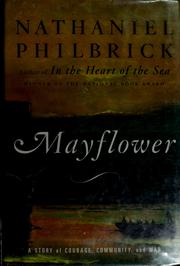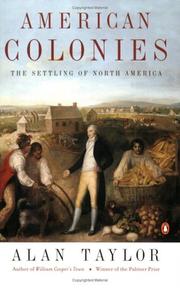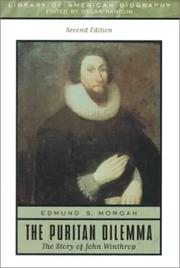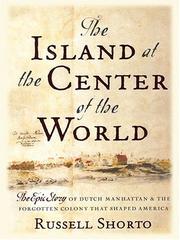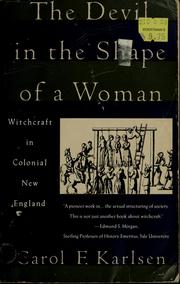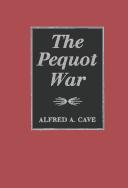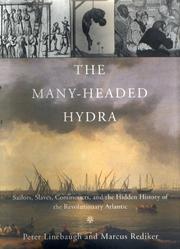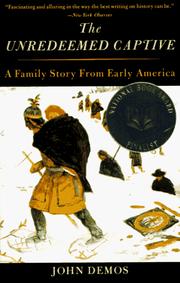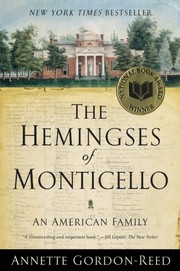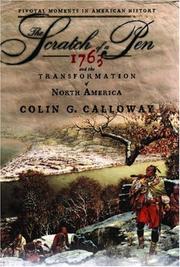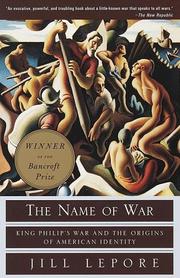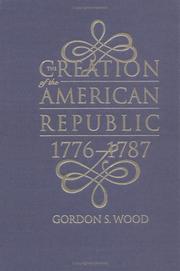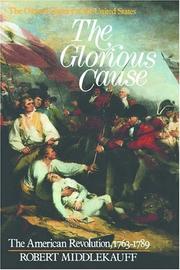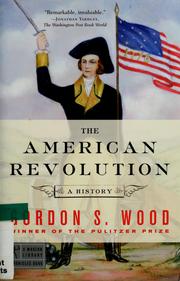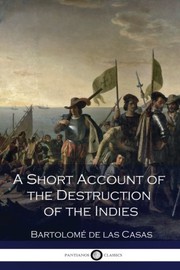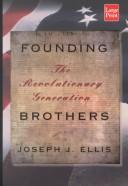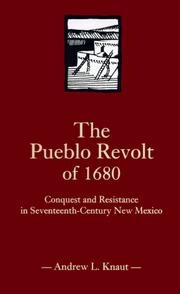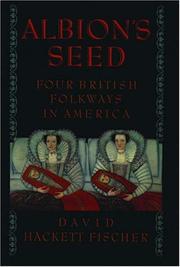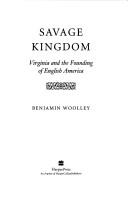Are you fascinated by the early colonial history of America? Dive into the past with these 20 captivating books on early colonial history. From the arrival of the first settlers to the establishment of the thirteen colonies, these books offer a vivid portrayal of the challenges and triumphs of the early colonial period. Whether you’re a history enthusiast or a student eager to learn more, these books will transport you back in time to experience the birth of a nation.
Contents
- 1 20 Best Books About Early Colonial History
- 2 Mayflower: A Story of Courage, Community, and War
- 3 American Colonies: The Settling of North America
- 4 The Puritan Dilemma: The Story of John Winthrop
- 5 The Island at the Center of the World: The Epic Story of Dutch Manhattan and the Forgotten Colony That Shaped America
- 6 The Devil in the Shape of a Woman: Witchcraft in Colonial New England
- 7 The Pequot War
- 8 The Many-Headed Hydra: Sailors, Slaves, Commoners, and the Hidden History of the Revolutionary Atlantic
- 9 The Unredeemed Captive: A Family Story from Early America
- 10 The Birth of the Republic, 1763-89
- 11 The Hemingses of Monticello: An American Family
- 12 The Scratch of a Pen: 1763 and the Transformation of North America
- 13 The Name of War: King Philip’s War and the Origins of American Identity
- 14 The Creation of the American Republic, 1776-1787
- 15 The Glorious Cause: The American Revolution, 1763-1789
- 16 The American Revolution: A History
- 17 A Short Account of the Destruction of the Indies
- 18 The Founding Brothers: The Revolutionary Generation
- 19 The Pueblo Revolt of 1680: Conquest and Resistance in Seventeenth-Century New Mexico
- 20 Albion’s Seed: Four British Folkways in America
- 21 Savage Kingdom: The True Story of Jamestown, 1607, and the Settlement of America
- 22 Conclusion
- 23
- 24 Reading List of Child Sexual Abuse Books – 2024 Update
- 25 Walking Journeys Books: A Curated 2024 Updated List
- 26 Discover Best An Underground City Books: 20 Key Titles, 2024 Updated
20 Best Books About Early Colonial History
Mayflower: A Story of Courage, Community, and War
by Nathaniel Philbrick
Mayflower: A Story of Courage, Community, and War by Nathaniel Philbrick is a captivating book on early colonial history that delves into the story of the Pilgrims and the founding of Plymouth Colony. Philbrick paints a vivid picture of the challenges and triumphs faced by the passengers of the Mayflower as they embarked on their journey to the New World in search of religious freedom. The book explores the complex interactions between the Pilgrims and the Native American tribes, leading up to the devastating conflict known as King Philip’s War. Through meticulous research and compelling storytelling, Philbrick brings to life the struggles and resilience of these early settlers, providing a nuanced and thought-provoking account of this crucial period in American history. Mayflower is a must-read for anyone interested in gaining a deeper understanding of the complexities of early colonial history.
American Colonies: The Settling of North America
by Alan Taylor
American Colonies: The Settling of North America by Alan Taylor is a captivating book on early colonial history. Taylor delves into the complex and often overlooked period of North American colonization, examining the diverse experiences of the English, Dutch, and Spanish settlers. Through meticulous research and engaging storytelling, he provides a comprehensive overview of the economic, social, and political dynamics that shaped the development of the colonies. Taylor also explores the interactions between the settlers and the indigenous peoples, shedding light on the complexities of early colonial relationships. This book about early colonial history offers a rich and nuanced understanding of the forces that drove the expansion of European powers in North America. Whether you’re a history enthusiast or a student of American history, American Colonies is a must-read for anyone interested in gaining a deeper insight into the early colonial history of North America.
The Puritan Dilemma: The Story of John Winthrop
by Edmund S. Morgan
The Puritan Dilemma: The Story of John Winthrop by Edmund S. Morgan is a captivating book on early colonial history that delves into the life and challenges of John Winthrop, a prominent figure in the early Puritan settlement of New England. Morgan explores Winthrop’s struggles and triumphs as he navigates the complexities of leading a religious community in a new and unfamiliar land. Through vivid storytelling and meticulous research, the author provides a compelling portrayal of the early colonial history and the founding of the Massachusetts Bay Colony. Readers will gain a deeper understanding of the religious and political tensions that shaped the New World, making this book about early colonial history a must-read for anyone interested in the origins of American society and culture.
The Island at the Center of the World: The Epic Story of Dutch Manhattan and the Forgotten Colony That Shaped America
by Russell Shorto
The Island at the Center of the World by Russell Shorto is a captivating book about the forgotten colony that shaped America. This engaging narrative delves into the early colonial history of Dutch Manhattan, bringing to life the vibrant and diverse society that existed long before the British took control. Shorto’s meticulous research and vivid storytelling paint a vivid picture of the Dutch influence on the development of New York, from the establishment of the fur trade to the unique blend of cultures that laid the foundation for the city we know today. Through a rich tapestry of historical detail and compelling characters, the book offers a fresh perspective on the often overlooked Dutch legacy in America. A must-read for anyone interested in the early colonial history of the United States.
The Devil in the Shape of a Woman: Witchcraft in Colonial New England
by Carol F. Karlsen
The Devil in the Shape of a Woman: Witchcraft in Colonial New England by Carol F. Karlsen is a captivating book on early colonial history that delves into the fascinating and dark world of witchcraft in 17th-century New England. Karlsen explores the societal, economic, and religious factors that contributed to the widespread fear and persecution of women accused of witchcraft during this tumultuous period. Through meticulous research and compelling storytelling, the author sheds light on the complex dynamics of gender, power, and superstition in early colonial America. This thought-provoking book about early colonial history offers a fresh perspective on the Salem witch trials and the broader phenomenon of witch hunts in the region. With its rich detail and insightful analysis, The Devil in the Shape of a Woman is a must-read for anyone interested in the history of witchcraft and the enduring legacy of colonial hysteria.
The Pequot War
by Alfred A. Cave
The Pequot War by Alfred A. Cave is a captivating book on early colonial history that delves into the complex and brutal conflict between the English settlers and the Pequot tribe in 1637. Cave paints a vivid picture of the power struggles, cultural clashes, and violence that characterized this pivotal event in American history. Through meticulous research and compelling storytelling, the author brings to life the key players, battles, and political intrigues that shaped the course of the war. This book about early colonial history offers a nuanced and thought-provoking exploration of the dynamics between European colonizers and Native American communities, shedding light on the enduring impact of this tumultuous period. With its rich detail and engaging narrative, The Pequot War is an essential read for anyone interested in gaining a deeper understanding of early colonial history.
The Many-Headed Hydra: Sailors, Slaves, Commoners, and the Hidden History of the Revolutionary Atlantic
by Peter Linebaugh and Marcus Rediker
The Many-Headed Hydra is a groundbreaking book on the early colonial history of the Atlantic world, written by Peter Linebaugh and Marcus Rediker. This captivating work delves into the hidden history of sailors, slaves, and commoners during the revolutionary era, shedding light on the lives of those who have often been overlooked in traditional historical narratives. Linebaugh and Rediker explore the interconnected struggles of these diverse groups as they resisted oppression and exploitation, offering a fresh perspective on the social and economic dynamics of the time. Through vivid storytelling and meticulous research, the authors paint a vivid picture of the revolutionary Atlantic, challenging readers to reconsider their understanding of this pivotal period in history. The Many-Headed Hydra is a must-read for anyone interested in a comprehensive and alternative view of early colonial history.
The Unredeemed Captive: A Family Story from Early America
by John Demos
The Unredeemed Captive by John Demos is a captivating book on early colonial history that tells the story of Eunice Williams, a young girl taken captive by Native Americans during a raid in Deerfield, Massachusetts in 1704. Demos meticulously reconstructs the events of this dramatic incident and its aftermath, shedding light on the complex interactions between the English settlers and the Native American tribes during the early colonial period. Through the lens of Eunice’s experience, the book offers a powerful exploration of cultural exchange, identity, and survival in the midst of turbulent times. The Unredeemed Captive is a compelling and thought-provoking book about early colonial history that brings to life the challenges and conflicts of the early American frontier.
The Birth of the Republic, 1763-89
by Edmund S. Morgan
The Birth of the Republic, 1763-89 by Edmund S. Morgan is a captivating book on early colonial history that delves into the tumultuous period leading up to the birth of the United States. Morgan provides a vivid and engaging account of the events, ideas, and individuals that shaped the American Revolution and the establishment of the Republic. By exploring the complex relationships between the American colonies and the British empire, Morgan offers readers a deeper understanding of the political, social, and economic forces at play during this pivotal time in history. With meticulous research and compelling storytelling, this book about early colonial history provides a comprehensive overview of the events that laid the foundation for the birth of the United States as a republic. A must-read for anyone interested in early colonial history and the origins of American democracy.
The Hemingses of Monticello: An American Family
by Annette Gordon-Reed
The Hemingses of Monticello: An American Family by Annette Gordon-Reed is a captivating book about early colonial history that delves into the complex and often overlooked story of the Hemings family, who were enslaved at Thomas Jefferson’s Monticello plantation. Through meticulous research and compelling storytelling, Gordon-Reed brings to life the experiences of this remarkable family, including their relationships with the Jeffersons and their struggles for freedom.
This early colonial history book offers a nuanced and insightful portrayal of the intertwined lives of the Hemingses and the founding father of America, shedding light on the complexities of race, power, and identity in the early years of the United States. Gordon-Reed’s exploration of this American family’s legacy is a powerful and essential contribution to our understanding of the nation’s history.
The Scratch of a Pen: 1763 and the Transformation of North America
by Colin G. Calloway
The Scratch of a Pen: 1763 and the Transformation of North America by Colin G. Calloway is a compelling book on early colonial history that delves into the pivotal year of 1763 and its profound impact on the North American continent. Calloway’s narrative explores the aftermath of the Seven Years’ War and the signing of the Treaty of Paris, which resulted in significant territorial shifts and power dynamics between European powers and indigenous nations. Through meticulous research and vivid storytelling, Calloway paints a vivid picture of the early colonial history period, shedding light on the complex interactions between colonial settlers, Native American tribes, and imperial powers. The book offers a nuanced examination of how this critical moment reshaped the geographical, political, and cultural landscape of North America, making it an essential read for anyone interested in understanding the intricate layers of this transformative era.
The Name of War: King Philip’s War and the Origins of American Identity
by Jill Lepore
The Name of War by Jill Lepore is a captivating book on early colonial history that delves into the complexities of King Philip’s War and its impact on American identity. Lepore examines the clash of cultures between Native Americans and English settlers, shedding light on the ways in which the war shaped the formation of American identity in the 17th century. Through meticulous research and vivid storytelling, she explores the narratives of both the colonists and the Native Americans, offering a nuanced understanding of the conflict and its aftermath. This book about early colonial history challenges traditional historical interpretations and offers a fresh perspective on the origins of American identity. Lepore’s compelling narrative and insightful analysis make The Name of War a must-read for anyone interested in early colonial history.
The Creation of the American Republic, 1776-1787
by Gordon S. Wood
The Creation of the American Republic, 1776-1787 by Gordon S. Wood is a seminal book on the founding of the United States. Through meticulous research and engaging prose, Wood provides a comprehensive account of the political, social, and intellectual developments that led to the creation of the American republic. This book about early colonial history delves into the key events and ideas that shaped the American Revolution and the subsequent formation of the Constitution. Wood’s analysis offers valuable insights into the ideals and tensions that defined the early colonial history of the United States, making it an essential read for anyone interested in understanding the roots of American democracy. With its compelling narrative and rich historical detail, The Creation of the American Republic, 1776-1787 is a must-read for anyone passionate about early colonial history.
The Glorious Cause: The American Revolution, 1763-1789
by Robert Middlekauff
The Glorious Cause: The American Revolution, 1763-1789 by Robert Middlekauff is a compelling book on early colonial history that delves into the tumultuous period leading up to and during the American Revolution. Middlekauff’s comprehensive account provides a vivid portrayal of the political, social, and military aspects of the time, offering insight into the experiences of both prominent figures and ordinary citizens. The book vividly captures the tensions and conflicts that ultimately led to the birth of a new nation, making it a captivating read for anyone interested in the intricacies of the early colonial history of the United States. Middlekauff’s meticulous research and engaging storytelling bring this pivotal period to life, making The Glorious Cause a must-read for history enthusiasts and students alike.
The American Revolution: A History
by Gordon S. Wood
The American Revolution: A History by Gordon S. Wood is a captivating book on early colonial history that delves into the complex events leading to the birth of the United States. Wood skillfully examines the political, social, and ideological factors that fueled the revolutionary movement, offering fresh insights into the motivations of key figures such as George Washington, Thomas Jefferson, and John Adams. Through meticulous research and engaging storytelling, Wood brings to life the tumultuous era of rebellion and upheaval, shedding light on the struggles and triumphs that shaped the nation’s founding. This book about early colonial history is a must-read for anyone seeking a deeper understanding of the American Revolution and its enduring impact on the course of history.
A Short Account of the Destruction of the Indies
by Bartolomé de las Casas
A Short Account of the Destruction of the Indies, written by Bartolomé de las Casas, is a harrowing and eye-opening book on early colonial history. Originally published in 1552, this seminal work provides a firsthand account of the atrocities committed by the Spanish conquistadors in the Americas. Las Casas, a former colonist turned advocate for indigenous rights, vividly describes the brutal treatment and exploitation of the indigenous peoples, revealing the devastating impact of European colonization. This book about early colonial history exposes the dark and often overlooked side of the Age of Exploration, shedding light on the suffering endured by the native populations. A Short Account of the Destruction of the Indies remains a crucial and powerful testimony to the injustices of early colonial history, serving as a stark reminder of the consequences of colonization.
The Founding Brothers: The Revolutionary Generation
by Joseph J. Ellis
The Founding Brothers: The Revolutionary Generation by Joseph J. Ellis is a fascinating exploration of the relationships and interactions between key figures in the early colonial history of the United States. Ellis delves into the lives of influential individuals such as George Washington, Thomas Jefferson, and John Adams, shedding light on the complex dynamics that shaped the nation’s founding. Through a series of compelling narratives, the book offers a deeper understanding of the challenges and triumphs of this pivotal period in American history. Ellis skillfully uncovers the personal and political struggles that defined the Revolutionary era, making this book about early colonial history a captivating and enlightening read for anyone interested in the formation of the United States.
The Pueblo Revolt of 1680: Conquest and Resistance in Seventeenth-Century New Mexico
by Andrew L. Knaut
The Pueblo Revolt of 1680: Conquest and Resistance in Seventeenth-Century New Mexico by Andrew L. Knaut is a captivating book on early colonial history. Knaut expertly explores the complex dynamics of power, resistance, and cultural exchange in seventeenth-century New Mexico, shedding light on the often overlooked Pueblo perspective. The book delves into the events leading up to the Pueblo Revolt, the strategies employed by Pueblo leaders, and the lasting impact of the uprising on Spanish colonial rule. Knaut’s meticulous research and engaging narrative style make this book a valuable resource for anyone interested in the history of indigenous resistance and the early colonial history of the American Southwest. The Pueblo Revolt of 1680 offers a compelling and insightful look into a pivotal moment in early colonial history.
Albion’s Seed: Four British Folkways in America
by David Hackett Fischer
Albion’s Seed: Four British Folkways in America by David Hackett Fischer is a fascinating exploration of the cultural impact of early British immigration to America. The book delves into the distinct folkways brought over by four different groups of British settlers – the Puritans, the Cavaliers, the Quakers, and the Scots-Irish – and examines how these unique traditions shaped the development of American society. Fischer’s in-depth analysis provides a comprehensive understanding of the diverse cultural influences that contributed to the fabric of American civilization. Through meticulous research and compelling storytelling, the book offers a rich and nuanced portrayal of the early colonial history, shedding light on the origins of American cultural identity.
Savage Kingdom: The True Story of Jamestown, 1607, and the Settlement of America
by Benjamin Woolley
Savage Kingdom is a captivating book on early colonial history that delves into the turbulent and often brutal founding of Jamestown, America’s first permanent English settlement. Benjamin Woolley vividly brings to life the harsh realities faced by the settlers in 1607, from conflict with the indigenous people to disease and starvation. Through meticulous research and engaging storytelling, he paints a vivid picture of the struggle for survival and the complex dynamics of power and ambition within the colony. Woolley’s narrative is filled with drama, intrigue, and larger-than-life characters, making this book about early colonial history a gripping and illuminating read for anyone interested in the origins of America. With its rich detail and compelling storytelling, Savage Kingdom offers a fascinating glimpse into a pivotal moment in early colonial history.
Conclusion
Exploring the rich and complex history of early colonial America through literature is a captivating journey. The 20 best books about Early Colonial History offer readers a deep dive into the triumphs, struggles, and pivotal moments that shaped the foundation of the nation. From the exploration of the New World to the founding of the first English colonies, these books provide invaluable insights into the diverse experiences and perspectives of the era. Whether you are a history enthusiast or simply seeking to broaden your understanding of this formative period, these books are essential additions to any reading list.
Which Early Colonial History book is best?
The best book on Early Colonial History can vary with personal preference, but three widely recommended titles are:
- Mayflower: A Story of Courage, Community, and War by Nathaniel Philbrick,
- American Colonies: The Settling of North America by Alan Taylor,
- The Puritan Dilemma: The Story of John Winthrop by Edmund S. Morgan.
Each offers valuable insights and could be a great starting point.
What are the best books to learn about Early Colonial History?
For those looking to learn about Early Colonial History, there is a wealth of literature that can provide a comprehensive understanding of the subject. Some of the most highly recommended books include:
- Mayflower: A Story of Courage, Community, and War by Nathaniel Philbrick,
- American Colonies: The Settling of North America by Alan Taylor,
- The Puritan Dilemma: The Story of John Winthrop by Edmund S. Morgan,
- The Island at the Center of the World: The Epic Story of Dutch Manhattan and the Forgotten Colony That Shaped America by Russell Shorto,
- The Devil in the Shape of a Woman: Witchcraft in Colonial New England by Carol F. Karlsen,
- The Pequot War by Alfred A. Cave,
- The Many-Headed Hydra: Sailors, Slaves, Commoners, and the Hidden History of the Revolutionary Atlantic by Peter Linebaugh and Marcus Rediker,
- The Unredeemed Captive: A Family Story from Early America by John Demos,
- The Birth of the Republic, 1763-89 by Edmund S. Morgan,
- The Hemingses of Monticello: An American Family by Annette Gordon-Reed
These books offer a range of perspectives on Early Colonial History, covering various aspects and approaches to the subject.
What are the best books on Early Colonial History?
The best books on Early Colonial History include:
- Mayflower: A Story of Courage, Community, and War by Nathaniel Philbrick,
- American Colonies: The Settling of North America by Alan Taylor,
- The Scratch of a Pen: 1763 and the Transformation of North America by Colin G. Calloway,
- The Name of War: King Philip’s War and the Origins of American Identity by Jill Lepore,
- The Unredeemed Captive: A Family Story from Early America by John Demos,
- The Pequot War by Alfred A. Cave.
Each offers unique insights into the subject. While these books on the topic of Early Colonial History are highly regarded, it’s important to note that any list of ‘best’ books is subjective and reflects a range of opinions.
What are the best Early Colonial History books of all time?
Choosing the best Early Colonial History books of all time can vary depending on who you ask, but seven titles that are often celebrated include
- Mayflower: A Story of Courage, Community, and War by Nathaniel Philbrick,
- American Colonies: The Settling of North America by Alan Taylor,
- The Devil in the Shape of a Woman: Witchcraft in Colonial New England by Carol F. Karlsen,
- The Unredeemed Captive: A Family Story from Early America by John Demos,
- The Hemingses of Monticello: An American Family by Annette Gordon-Reed,
- The Name of War: King Philip’s War and the Origins of American Identity by Jill Lepore,
- and The Scratch of a Pen: 1763 and the Transformation of North America by Colin G. Calloway.
Each of these books has made a significant impact in the field of Early Colonial History and continues to be influential today.

